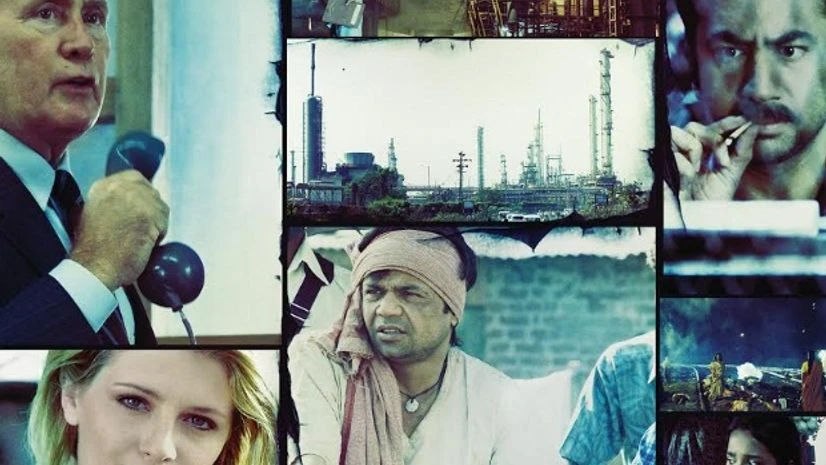Bhopal: A Prayer for Rain, directed by Ravi Kumar, is curiously described in press notes as a “social thriller”. This is Kumar’s maiden full-length feature, after some short films earlier. He co-wrote the film along with first-timer David Brooks, taking “certain cinematic liberties” for dramatic effect. One wondered how its makers would pack in three decades of events into less than two hours. They tackle it by leaving out a number of years, with a detailed depiction of the situation before and during the calamity but only a perfunctory look at the evasion of accountability thereafter.
The film tells the story of the 1984 catastrophe through its fictional protagonist Dilip (Rajpal Yadav), an impoverished rickshaw driver who ecstatically lands a job at multinational chemicals company Union Carbide. Martin Sheen plays the firm’s then chairman Warren Anderson, who takes pride in having set up shop in a Third-World city. Independent local journalist Motwani (Kal Penn) is eager to expose safety violations at the factory, which he suspects is storing a reactive chemical that is making locals sick. He is assisted in his investigation briefly by another fictional character Eva (Mischa Barton), a lifestyle reporter on assignment in Bhopal.
In Kumar’s film, ambitions drive local workers to inventively step up production while higher officials overlook the ensuing risks to safety. The first warning sign is the accidental death of a worker, which leads an inexperienced Dilip to take his place and convinces Motwani of the potential lethality of methyl isocyanate. Foreboding music and shots of chemicals gurgling inside tanks create tension during the build-up. The film does well to reflect India’s fledgling fascination with big business at the time that allowed workers to afford ration or dowry for a sister’s marriage. To those familiar with the incident itself, however, it does not offer much in terms of a reveal.
More From This Section
Yadav seems comfortable in a role we have seen him play before — the endearing country bumpkin. Tannishtha Chatterjee, who plays his wife, brings intensity to what is a small part. A rather robotic Barton is unsuccessful in showing how an uptight lifestyle writer develops a taste for investigative reporting. Penn’s portrayal of the glib Motwani provides much-needed comic relief.
The writers make much of Anderson’s intentions of building a factory that “feeds (Bhopal)”. He fixes loose valves with a smile and makes playful conversation with a child. Later, the same man prefers discussing wine rather than compensation for a dead employee and glosses over his company’s role in the eventual mishap. Sheen’s performance is impressive, making this transition seem less irregular than it perhaps is in the script. In this melodrama, local officials who are shown abandoning caution to raise output come across as more unquestionably wicked. Facts such as “Union Carbide has never apologised” and that it offered only $2,000 per victim appear in text at the closing.
While the film is significant because of its subject matter, Bhopal: A Prayer for Rain’s overall attempt to be a social thriller fails to impress.

)
